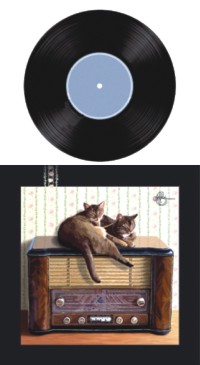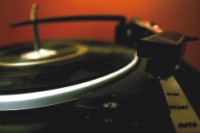|
Musings
 The memories The memories
that arise in song
Syed Badrul Ahsan
On a cold evening in London, in my fifties, I lose myself in a song I first had occasion to listen to when I was nine. And it was nine decades ago, obviously. The song is Suman Kalyanpur's dil gham se jal raha hai jale par dhuan na ho. It was a January day, and news came in of the death of Mohammad Ali Bogra. And then this song came wafting along all the way from a radio station to the small garrison town we lived in. It was a popular song, seeing that it was played everyday. And everyday too, for nearly a week, came news and images of Bogra, foreign minister in the cabinet of Field Marshal Ayub Khan, in death.
This January, then, it was something of a journey back in time as I heard that song once again in my wife's quiet little flat on a blustery evening. It was one of those moments when the mind remembered the lost days of innocence and the soul yearned for times that clearly remain etched as brilliant art in the region of memory. Have I forgotten Abdul Jabbar's inimitable hajar bochhor pore abar eshechhi phire Banglar booke achhi danrhiye? It is a song that I first heard, my generation heard, in those electric moments soon after the Pakistan occupation army had surrendered in Bangladesh. Those were the first lyrics that we heard in a free Bangladesh as they were played on Dhaka Radio. And since that defining moment in history, this song has come back to me, trippingly on the tongue. Only three months earlier, as Eid ul Fitr came to a country occupied by a genocidal army, Shwadhin Bangla Betar played chand tumi phire jao dekho manusher khune khune roktim Bangla. Those were dark days, dark because the enemy pursued us, in our very own villages and fields of paddy, trying to shoot the life out of us. When during the monsoon an insistent rain beats on the roof of our hut in Noagaon --- and that is our village in an upazilla we call Araihazar --- it is the gloom of a long-ago September I recall. And the heart beats with the cadences of the songs we sang on the fields of battle.
If nothing else takes you back to times past, music will. In the early 1960s, in my sixth year of life, my mother and her sister sang, whenever they could snatch some time off domestic chores, the unforgettable amar shaadh na mitilo asha na purilo shokol-i phuraye jaye Maa. My mother, given the beautiful name Suraiya by her parents, sang the gripping numbers that the other Suraiya sang in the old movies. Wo pas rahe ya door rahe nazron mein samaye rahte hain was one of those songs. I hear those songs and I miss my mother. She was beautiful, as beautiful as the actress-singer Suraiya. Does beauty define every Suraiya we come across? I don't know, but you tend to reflect quite a bit on the subject when you recall another Suraiya, the woman who once was consort to the eventually unfortunate Shah of Iran. Ah, the emotions that come into our sensibilities with every remembrance of what used to be. In late 1968, as the astronauts of Apollo 8 rounded the dark side of the moon, for that very first time in the history of mankind, a beautifully searing song broke through the cold, windy December night to connect my loneliness with that of the astronauts around the moon. It was Mukesh's chal akela chal akela chal akela tera mela peechhe chhoota rahi chal akela.
 Around the same time came Mohammad Rafi's pretty romantic chhalkaye jaam aiye aap ki ankhon ke naam honton ke naam. Nearly three decades later, in the shade of a declining afternoon amidst quiet trees, I sang Mehdi Hassan's pyar bhare do sharmile nain jin se mila mere dil ko chain. The exquisitely lovely Tuntuni wept in an admixture of joy and sadness as the rays of an increasingly drowsy sun played on her cheeks. These days, when Kishore Kumar's pyar diwana hota hai mastana hota hai bursts upon me once again, it is the dry and dusty May afternoons in Quetta that spring to mind. It was 1971 and my compatriots were being killed like birds in my ravaged country. In enemy territory, I could do nothing. It was only that song which went on and on. And yet it was in Quetta where, in kindergarten, I had happily sung Are You Sleeping, Brother John? Morning Bells Are Ringing as my Maltese music teacher Don Cardeux worked the piano. Those were happy days. Who knew that in a bare nine years the old familiar mountains would evoke images of psychological incarceration for me? In the year of the Cuban missile crisis, my mother sang Naseem Begum's hum bhool gaye har baat magar tera pyar nahin bhoole and my father had Talat Mehmood's tasveer teri dil mera behla na sakegi on his lips. These songs, when I hear them in middle age, are a flashback to images of ripening grapes in the courtyard, of noisy games in the street, of the school bus creating great commotion as it arrived every morning to take me and my brothers to school. A second bus came, a little more gently, to pick up my sister. Around the same time came Mohammad Rafi's pretty romantic chhalkaye jaam aiye aap ki ankhon ke naam honton ke naam. Nearly three decades later, in the shade of a declining afternoon amidst quiet trees, I sang Mehdi Hassan's pyar bhare do sharmile nain jin se mila mere dil ko chain. The exquisitely lovely Tuntuni wept in an admixture of joy and sadness as the rays of an increasingly drowsy sun played on her cheeks. These days, when Kishore Kumar's pyar diwana hota hai mastana hota hai bursts upon me once again, it is the dry and dusty May afternoons in Quetta that spring to mind. It was 1971 and my compatriots were being killed like birds in my ravaged country. In enemy territory, I could do nothing. It was only that song which went on and on. And yet it was in Quetta where, in kindergarten, I had happily sung Are You Sleeping, Brother John? Morning Bells Are Ringing as my Maltese music teacher Don Cardeux worked the piano. Those were happy days. Who knew that in a bare nine years the old familiar mountains would evoke images of psychological incarceration for me? In the year of the Cuban missile crisis, my mother sang Naseem Begum's hum bhool gaye har baat magar tera pyar nahin bhoole and my father had Talat Mehmood's tasveer teri dil mera behla na sakegi on his lips. These songs, when I hear them in middle age, are a flashback to images of ripening grapes in the courtyard, of noisy games in the street, of the school bus creating great commotion as it arrived every morning to take me and my brothers to school. A second bus came, a little more gently, to pick up my sister.
On a soft-falling twilight many years ago, when my 113-year-old grandfather gladdened us by his presence at our Rankin Street home, when we did not know that he and Bangabandhu had only months to live, a neighbour played on his LP Tagore's tomaye gaan shonabo ogo dukhojaganiya in Hemanta's voice. I have sung that song ever since, in the stillness of the night, in the cacophony of the day.
Copyright (R) thedailystar.net 2007 |
